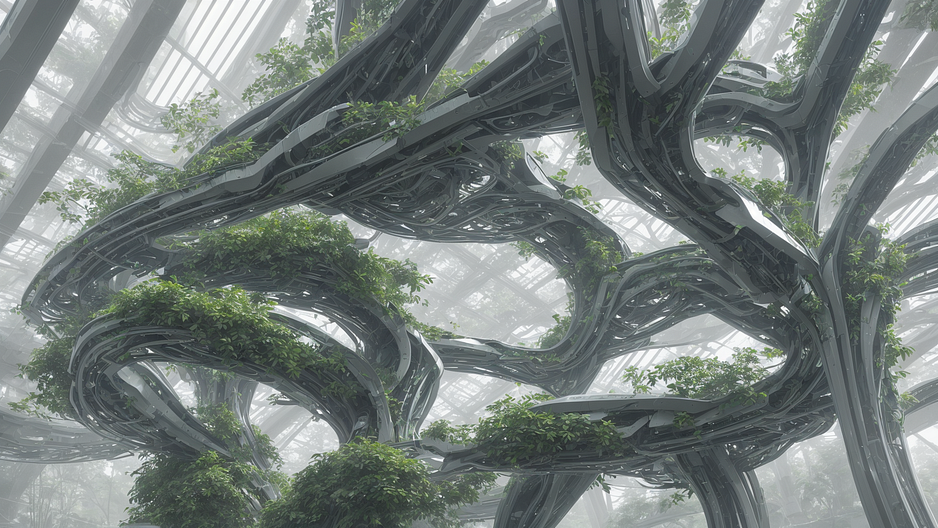Artificial Naturality — Re-engineering Humanity Lost In The Digital World

The “old world” may be forever lost to technology. But maybe the very same thing can revive the human experience. These are my thoughts derived from a journey into sports and penpalship.
Taking It Slow
About a month ago, I had an urge to address my prolonged social isolation. Long story short, I’m a complete loner. I don’t have anyone to talk to and haven’t had a real-life friend for about 10 years now.
As a result, I’ve become awkward, if not cynical, and a painful emptiness permeates through my existence. At the very least, I had to try and improve my situation or continue this slow mental decline.
With all that said, I decided to go against my long-standing beliefs and use an app specifically designed to connect with people.
I was always averse to the idea — it seemed so strange and forced to meet someone knowing you’re looking to become friends (let alone dating). I always had this idea of interpersonal relationships, whether platonic or romantic, being through naturally shared spaces and a slow development.
Perhaps that idea was a bit naive, given the present reality, where those spaces have ceased to exist for me. I wasn’t comfortable with the idea, but I reached an inflection point then.
And so, I began to research these types of apps.
Eventually, I settled on an app called Slowly, which connects digital penpals. After learning of the concept, I thought the dynamic would be a nice experience.
The main feature of these penpal apps is that messages take time to arrive. For example, sending a letter from the U.S. to China takes a bit more than a day. Therefore, there’s more time to think and flesh thoughts out.
It did take some mingling to find those I resonated with, but when I did, I felt I was living that carefree life I did as a child, at least while the rose-tinted glasses remained.
The aesthetic of the experience mimicked the simplicity of sites I used in my very first dives into the internet, over 15 years ago. I’ve exchanged deep conversations about human philosophy, life in other countries, and the emotions shared amongst us.
It was free from mental manipulation, and being treated as only an entity to market to. There was no need to falsify and uphold an image. Provocation still existed, but it was limited in exposure, and I had more agency to control it.
I felt I was connecting with people whilst finding my self as well.
Social media is a one-to-many dynamic in theory, but with the feelings it evokes, it might as well be one-to-none, or even none-to-none. And I think the “to” is an important distinction highlighting the depersonalization.
Here, I felt I was interacting one-with-one. And perhaps most significant was the return of delayed gratification, and in turn — the long-lost feeling of anticipation.
Anticipation was an ever-decreasing finite commodity for me. Everything in the present demands to be addressed immediately. Instant messaging, 24/7 accessibility.
Not a second to waste, it’s all about the now.
Everything is rushed, bombarded in droves, leaving nothing to look forward to but emptiness. But the present can’t be enjoyed either, and so it becomes this relentless cycle of trying to fill the void.
There are no mysteries or surprises, but certainly shock. No time to even think. Just a constant stream of instant dopamine, which fades as quickly as it comes, leaving a horrific feeling behind.
The wait for something great was a natural story arc. The inciting incident is where one learns of what’s to come. The rising action — where excitement builds. And finally, the climax and resolution, where one finally gets to reap the experience, whether positive or negative.
But in this neverending stream of screams, it’s just climax upon climax upon climax, diminishing into complete desensitization and short-circuiting of the mind.
Traditional media is another example of lost pace — a medium that all but disappeared from my life. I previously wrote how watching sports again was an effective alternative to these inclement feelings — that feeling of being part of something.
The last sport I watched live was baseball in the 2010s when the San Francisco Giants won three World Series. In an attempt to relive that, I started watching highlights of 49ers games halfway through the 2023 season.
Yes, I’m a bandwagoner.
Admittedly, I never understood the rules of American football, but I got caught up pretty quickly by Googling. And what do you know, they made it to the Super Bowl this February.
After signing up for a free trial, I watched the full game as it happened through streaming. And man, it was a rollercoaster. The crazy mistakes on both sides of the field. Complete whiplash.
By the final few minutes of overtime, even though the Niners were ahead 3 points, I was sure the Chiefs were going to touchdown and win, barring some miracle screwup.
And they did. But at the time, there was uncertainty left in this story arc — a slow burn of anticipation (and dread) that kept me on the edge of my seat.
The funny thing is, seeing the game unfold in real-time isn’t even my main example of this phenomenon.
It’s the commercials that really nail that structure.
Commercials served as a natural pause to use the bathroom or do something else when I was watching shows on Qubo in the late 2000s. It was a breather — a period of rest, where I’d wait in anticipation for the action (i.e. the show) to resume.
The set times and schedules also provided structure and made choices meaningful. If there were two happening at the same time, I had to pick one. If I was away when it aired, I was out of luck.
Once more though, social media changed that. There is no pacing, only non-stop action. There’s no choice when everything’s available — and if there is a choice, it’s often done for you.
Even disregarding the quality of ads, the messaging is crammed into seconds, so there’s no step back to breathe. And they pop out from anywhere, at any time, indifferent to all interruption.
This doesn’t apply to everything on social media, but the pressure of neverending choice leaks into everything from its environment. Even if the pace is right for one thing, another recommendation comes in to distract from the present and cut experiences short, in favor of the new shiny entertainment that’s popped up.
It’s impossible to focus on the now. It either passes in an instant, or is sidetracked by the temptations of another’s novelty.
Re-engineering
I’ve discovered my interests lie in the intersection of the natural world and technology. Quite frankly, this is the only area I haven’t developed a negative, insipid perception regarding modern software.
I visualize this juxtaposition — green grass and wildlife with computer vision and other technologies. Having the opportunity to work with this in the past year, it’s a vivid image of these stark opposites coexisting in the same domain.
Not only nature but also the human aspect. Evoking deeper emotions through art and stories, sometimes told implicitly without words. Abstract concepts that no numbers can calculate.
This area is what interests me the most.
I thought about this concept with the penpal apps I used, and the intentional slowing of pace, to synchronize technology with this human experience once more.
The term I thought of was this — artificial naturality.
Granted, it probably doesn’t need a vacuous term to haphazardly slap on, but I thought of one. It’s oxymoronic by design, nevertheless, I view this as a personal mantra and a technological designation.
I’ve worked to understand many influences I’ve experienced in the years I’ve lived, these writings being beneficial to that. It’s why I realized what I have here today.
There’s much I’m yet to know about myself. What other factors have contributed to this mental decline of mine? Besides the commonly discussed addictive proclivities and comparisons— why else do screens and social media make me feel the way I do, and how can I revert this?
I’ve discovered the loss of anticipation and pacing in this writing. But what, if anything else, defines the human experience I once had? That’s a question I’ll continue to discover in time.
These aspects may never return in their purest form. Technology can never be un-invented. But perhaps the natural accord can be reintroduced through the same artificial means that caused the problems in the first place.
And so lies these intriguing problems. How can feelings like those akin to a gleeful wait be reintroduced, without compromising too much of the conveniences the internet creates?
How can these artificial, but regenerative hindrances present themselves as alluring, for one to choose them over the addictions of doomscrolling, for instance? How can this be done without mimicking the same issues, while still being viable enough to keep the user within its domain?
And the most important question, exactly how much have we lost? What is there to reclaim, if there is any to at all?
That’s a question I’m optimistic to find answers to soon.
One I’ll anticipate a future for once more.
